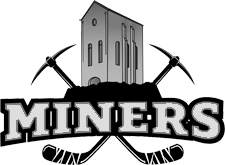Coaches
- Be a positive role model to your players, display emotional maturity and be alert to the physical safety of your players.
- Care more about your players than winning the game; remember players are involved for fun and enjoyment.
- Be generous with praise when it's deserved. Be consistent and honest, fair and just. Do not criticise players publicly. Learn to be an effective communicator and a good listener.
- Don't yell at the players and never verbally or physically abuse a player or an official. Adjust to the personal needs and problems of the players.
- Give all players the opportunity to improve their skills, gain confidence and develop self- esteem. Teach them the basics of the game. Be concerned with the overall development of your players.
- Organise practices that are fun and challenging to the players. Familiarise yourself with the rules, techniques and strategies of inline hockey.
- Encourage all your players to be team players.
- Maintain an open line of communication with the player's parents. Work together with them to develop the goals and objectives of the team.
Players
- Play for fun and enjoyment of the sport.
- Winning is a consideration, but not the only one.
- Work hard to improve your skills.
- Be a team player.
- Get along with and cooperate with your teammates.
- Learn teamwork, sportsmanship and discipline.
- Be on time for all games and practices.
- Learn the rules and play by them, always be a good sport.
- Respect your coach, manager, your teammates, your parents and your opponents and officials.
- Never argue with the decision of an official or your coach.
Parents / Caregivers / Spectators
- Encourage your children to play hard but fair.
- Never ridicule or criticise a person for making a mistake but encourage with positive comments.
- Applaud good efforts and performance not only your childs team but also in their opponents.
- Show your appreciation and support to the coaches and managers; remember they give their time and effort voluntarily.
- Respect any decision made by officials including referees.
- However if there is a concern please follow the appropriate procedure.
- Use appropriate behaviour by not using offensive language, harassing players, coaches, officials or other parents.
- Support your child in being punctual to trainings and games and to make sure that the coach/manager is aware if your child is unable to make trainings or games.

